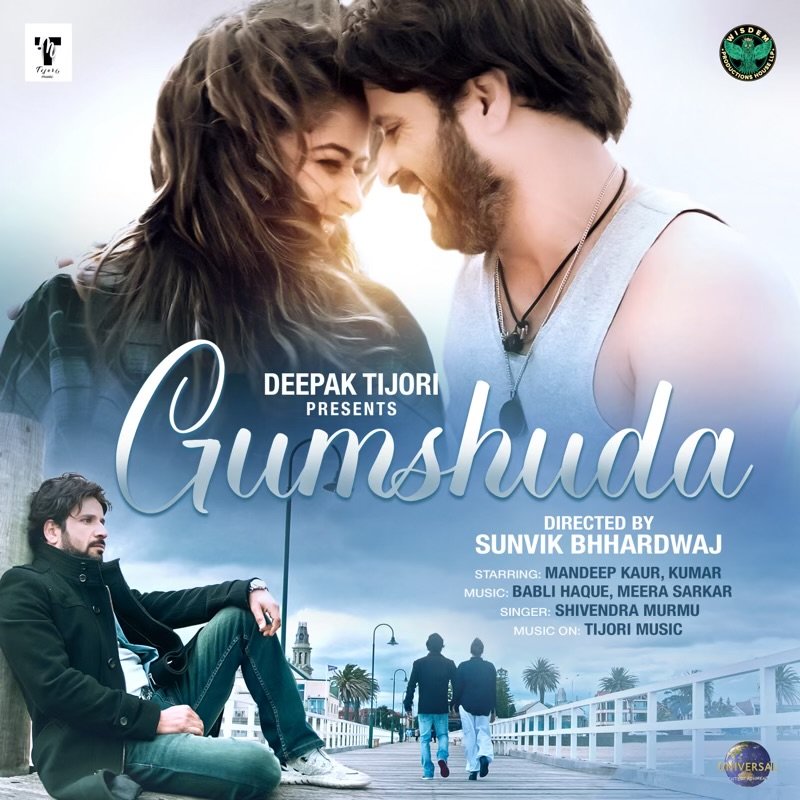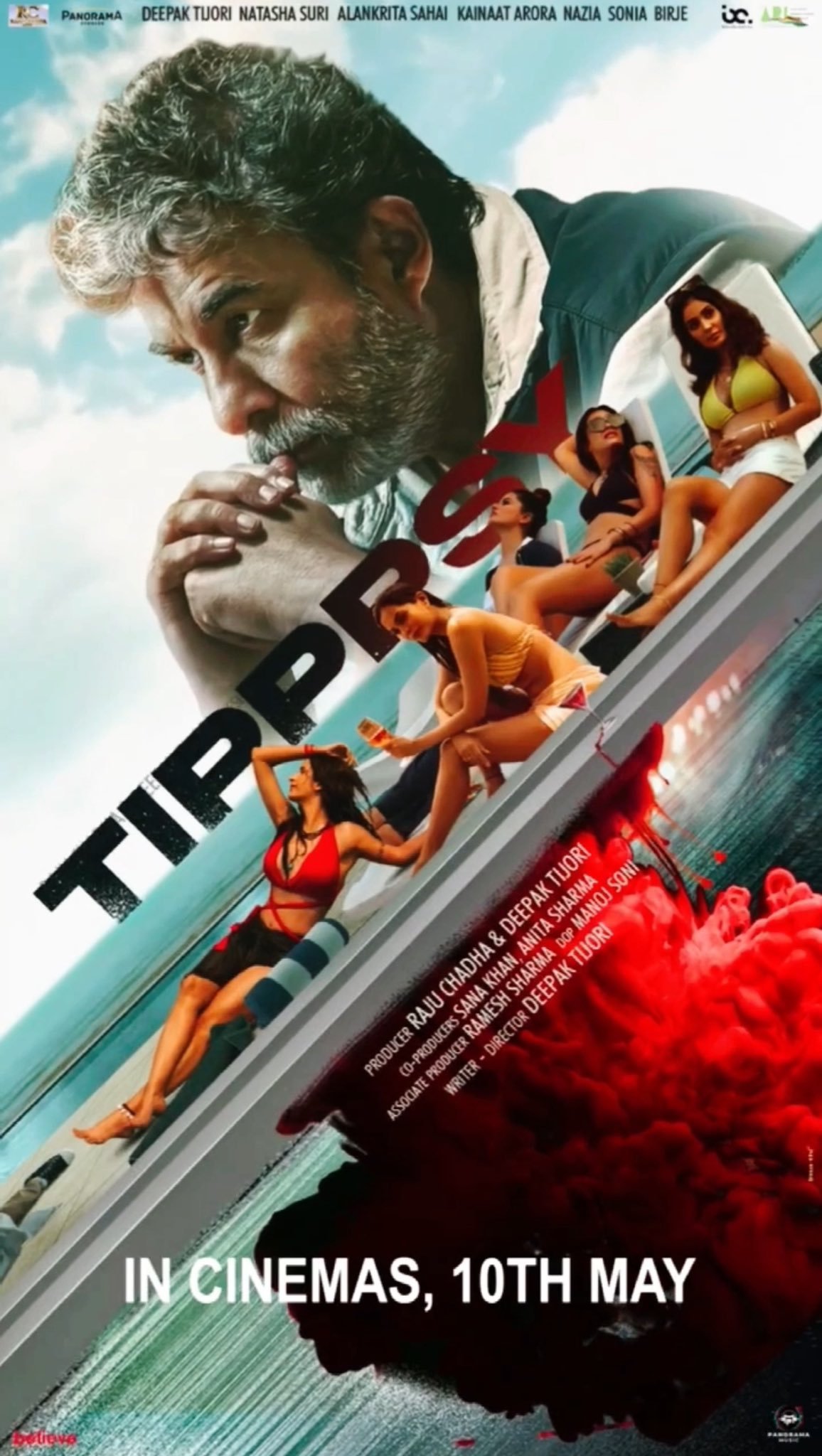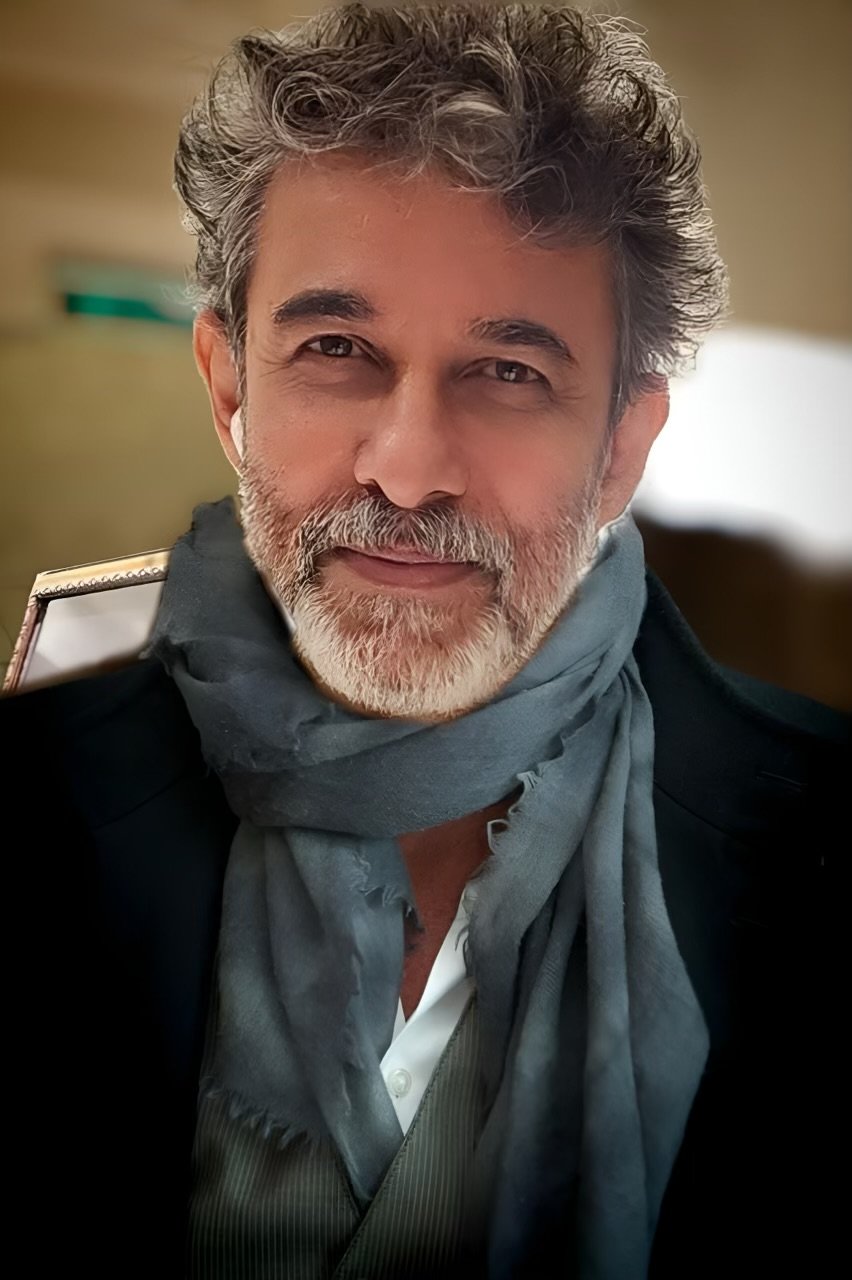Actor, producer, director and now owner of music label Tijori Music, Deepak Tijori is a fighter in every sense of the word. His friends call him an “iceberg” and that’s because no challenge, setback, or calamity seems to faze him. Also, like an iceberg, what you see is only a small part of his immense strength, for beneath the surface lies a fighter who’s weathered many storms, always choosing the tougher path without hesitation. In his long film career, fans have seen Deepak essay an array of roles – very often saying yes to projects that didn’t fully showcase his true potential. But despite being vastly underrated, his immense talent is undeniable, and those who know his work recognize the depth he brings to each character and every role he has undertaken in his life.
Now, with renewed passion, Deepak is ready for a new chapter. Armed with the launch of his own music label Tijori Music, he’s determined to carve a new legacy, one where he’s in control of both his creative journey and his artistic future. After all, nothing fazes an iceberg – and the resilient Deepak Tijori is proving that he’s still just getting started. In an exclusive interview with Sumita Chakraborty, Editor-in-chief, TheGlitz, Deepak Tijori talks about Tijori Music, Tipppsy, challenges and struggles, and much more…
Over To Deepak Tijori

You mentioned that the lack of creative control over your own music for Tipppsy was one of the driving forces behind launching Tijori Music. How common is this issue for independent filmmakers, and do you think this reflects a deeper problem in the Indian music industry?
Deepak Tijori: It’s quite common, unfortunately. Independent filmmakers often face severe challenges in maintaining control over their creative output, especially when it comes to music rights. Large labels tend to monopolize not just the distribution, but also the ownership of music. This creates a significant imbalance where the artist or producer is left with very little control over their own work. This reflects a systemic issue in the industry, where producers and creators are forced to relinquish their intellectual property in exchange for exposure, leaving them in vulnerable positions. The decision to launch Tijori Music was actually an emotional initiative which came from a very personal and tedious experience I faced with my last film Tipppsy, released in May 2024.

As an independent filmmaker, I’ve always believed in creative freedom and having control over my work; but the process of releasing the music for a film was an eye-opener. Closer to releasing the film in theatres, I had to close a deal for the film’s music by selling the songs to a music label. However, when I approached various known labels, I was shocked by the current state of the music market in India as the deals they offered lacked fair equity for the producers, putting us at a disadvantage with questionable transparency. I was left in a difficult position realizing that even if I wanted to use my own song in another film of mine in the future, I would especially have to beg the label for permission. For instance, I was outright refused when asked if I could post the songs from my film on my own YouTube channel. In case I rebelled, the music company had the right to strike my channel with a copyright claim. It was astonishing to learn that if I ever wanted to remake my own songs, which is quite common nowadays, I’d have to pay the label to use my own creation. This experience made me realize two things – First, to maintain control over my intellectual property (IPR), I needed to have my own music label. By owning Tijori Music, I can ensure that I have the freedom to use the music I create whenever I want without needing to acquire permissions or pay unnecessary hefty fees. Second, this experience opened my eyes to the struggle many artists face. There are countless talented musicians who don’t get the opportunity to bring forth their music because they are shut out by big labels.

You expressed shock at the transparency issues when dealing with established music labels. Could you elaborate on the kinds of contracts that independent filmmakers face, and how do these impact both filmmakers and musicians trying to make their mark?
Deepak Tijori: The contracts offered by major labels often lack fair equity for filmmakers and musicians. For example, as I mentioned with Tipppsy, I couldn’t even upload my own song to my personal YouTube channel. The contracts usually lock producers and musicians into terms that heavily favour the label, often depriving them of creative control and fair royalties. In such situations, filmmakers and musicians are at the mercy of the label for every small decision related to their music, including licensing or even remakes.

Deepak Tijori On Monopoly, Challenges & More
In your experience, do you think large music labels have monopolized the Indian music market, and how do you plan to counter this with Tijori Music? How does your label differ in terms of offering artists better opportunities?
Deepak Tijori: Absolutely, large music labels have a strong monopoly over the Indian market. My goal with Tijori Music is to break away from that, offering artists a fairer platform. We are focusing on giving creators control over their intellectual property, allowing them to freely use their own music without going through tedious permission processes. We want to support genuine talent without the typical industry barriers.
You highlighted how major labels don’t give producers fair equity or ownership. Can you share more about how Tijori Music will ensure that artists retain their rights over their intellectual property, and how your approach will empower creators?
Deepak Tijori: At Tijori Music, the goal is to ensure artists maintain full ownership of their work. Unlike major labels, we won’t take ownership of the songs. The artists will have the freedom to use their music for future projects without needing to ask for permission or pay hefty fees. This model empowers creators by letting them dictate how and where their music is used, which is crucial for artistic freedom.

The Iceberg! Deepak Tijori
With the growing popularity of independent labels like yours, do you foresee a shift in the power dynamics between large corporations and smaller labels? How do you think this will change the landscape of the Indian music industry?
Deepak Tijori: I do see a shift happening. I’ve seen musicians like A P Dhillon and Badshah start out on their own. They’ve come out of nowhere, yet are so popular. The rise of independent labels is creating new avenues for artists, challenging the dominance of big corporations. Independent platforms like Tijori Music will allow talented musicians and filmmakers to flourish without being constrained by outdated contracts or monopolistic practices. Over time, this will foster a healthier, more competitive landscape where creative freedom thrives.
With the rise of independent music platforms like yours, do you believe the Indian music industry is moving toward a more artist-friendly model, or are we still a long way off from seeing significant change?
Deepak Tijori: We’re still in the early stages of change. Although platforms like Tijori Music are a step in the right direction, the big labels continue to dominate much of the market. However, I believe as more artists and filmmakers seek autonomy over their work, the pressure will force the industry to become more artist-friendly. The change is happening, albeit slowly.
You’ve partnered with Believe India for digital distribution. In what ways do you see streaming platforms like Spotify and Apple Music leveling the playing field for independent artists, and how do you plan to leverage these platforms to compete with major labels?
Deepak Tijori: Streaming platforms like Spotify, Apple Music, and others are definitely leveling the playing field by giving independent artists direct access to a global audience. . I announced the launch of my music label by releasing the audio of Tijori Music’s first song titled ‘Gumshuda’ across all popular music platforms including Spotify, Apple Music, Amazon Music, JioSaavn, Gaana, Hungama and Wynk Music. With our partnership with Believe India, we’re ensuring that artists on Tijori Music can reach listeners worldwide without the heavy gatekeeping that major labels impose. We plan to fully utilize these platforms to give new talent the exposure they deserve
You expressed frustration about needing to pay to remake your own songs. In an era where remakes are quite common, how do you view the remake culture in the music industry? Does it stifle creativity, or do you see it as a way to keep songs relevant for new audiences?
Deepak Tijori: The remake culture is a double-edged sword. While it does keep songs relevant for new generations, it also stifles creativity when labels insist on reusing old content instead of encouraging fresh, original compositions. The frustration comes when creators like myself, who want to remix or reuse our own work, are forced to pay large sums for what should rightfully be ours. It’s one of the reasons I launched Tijori Music — to give artists that freedom back.
Your decision to launch Tijori Music came from a personal and difficult experience with Tipppsy. What personal challenges have you faced in your career that shaped your vision for Tijori Music, and how has it influenced the way you approach the business side of the entertainment industry?
Deepak Tijori: I’ve faced several personal challenges throughout my career, including being underestimated or sidelined in both filmmaking and acting. The experience with Tipppsy was a tipping point, but I’ve always had to fight for creative freedom. My struggles have shaped Tijori Music’s vision: it’s all about empowerment. I’ve learned to approach the business side of the industry with a mindset that values independence and long-term control over my work. I’m like an iceberg – nothing fazes me, and I keep fighting on.
Deepak, you’ve been part of some of the most iconic films in Bollywood. Many fans, including myself, consider you one of the most underrated actors in the industry. Do you feel that Bollywood hasn’t fully recognized or utilized your potential? And, if so, what challenges have you faced in breaking through as a leading star, despite being in such high-profile projects?
Deepak Tijori: Yes, I do feel that my potential hasn’t been fully recognized. While I’ve had the privilege of working on iconic films, I’ve often been typecast, said ‘yes’ to films for friends or been overlooked for larger roles. The challenge is in breaking through the industry’s perception. But I’ve always fought back, continuously evolving my craft. Like I said before, nothing fazes me. I’m like an iceberg — you only see a fraction of what’s there, but the real strength lies beneath the surface. I keep fighting, and I believe my best work is still ahead of me. So now I see myself in my salt and pepper avatar tapping more unexplored avenues. Like I said, my best is yet to come.













